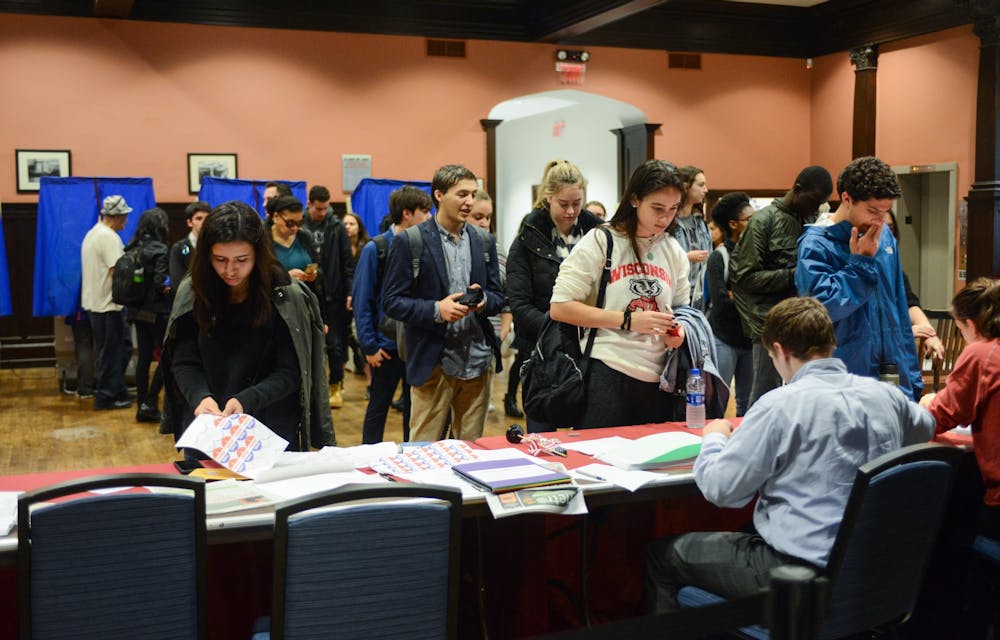
American politics were a shock to me at first. I grew up in Iran, a nation beset by political oppression, coming to the United States solely in pursuit of my academic goals. When I first came to America, I initially had a hard time digesting the liberties Americans are granted. Slowly but surely, I started to learn the story of this great nation, one written by all the people that constitute America.
The experiment of the Republic withstood the test of the Revolutionary War because people decided so. Americans decided to stand by the American values and abolished slavery, brought about the civil rights movement, recognized equal rights for women and members of the LGBTQ community, and much more. The reasoning that much of this political change has occurred is in part the fact that Americans possess a right to vote in free, fair, and consequential elections.
To ensure that as many people can exercise this right as possible, Penn must afford election days the same protections as it gives religious holidays. In other words, Penn must not allow exams to be scheduled on Election Day.
Even though Pennsylvania's primary and the 2020 Presidential election are both months away, it is no secret that election turnout among Penn students is less than stellar. According to a report published by The Daily Pennsylvanian in November 2019, only around 1,100 Penn students voted for mayor and city council positions.
What is even more alarming is the fact that the number was 213 in the 2015 election. Penn has around 25,000 students. Even if only 15% of students are eligible to vote in Pennsylvania, that would be a 30% turnout in 2019 — close to city-wide turnout according to The Philadelphia Inquirer. Not practicing your right to vote is no more useful than living in a regime where you can't vote.
This lack of turnout has real consequences. Nicholas O’Rourke, the progressive candidate of the Working Families Party, fell short of being elected to City Council by a mere 7,000 votes. At Penn alone, there probably were enough votes to change that outcome. This dynamic even extends to national elections; the state of Pennsylvania was won by Donald Trump by a mere 45,000 vote margin. While Penn couldn't flip Pennsylvania on its own, its thousands of untapped votes make a substantial difference. Because of all that, Penn not having Election Day as an exam-free day quite literally can impact the results of elections.
As a graduate student, I served as a teaching assistant at the time of the November 2019 election, and saw the impacts of this first-hand, when my own students had an exam planned on Election Day.
Interestingly, the reason they were having their exam that week and not the week before was because of an overlap with a Jewish holiday, when we could not give exams. This became an issue of interest to me, and I dug into the 2019-2020 Penn catalog and found that “the University also recognizes that there are several religious holidays that affect large numbers of University community members, including Christmas, Rosh Hashanah, Yom Kippur, the first two days of Passover, and Good Friday. In consideration of their significance for many students, no examinations may be given, and no assigned work may be required on these days.”
This is in alignment with our American values, but why shouldn't Election Day be afforded the same protection?
I am not trying to argue that exams scheduled on Election Day are the sole reason for the poor turnout. Nonetheless, I think it is totally reasonable for us students to ask Penn to implement the same restrictions on Election Day as it does for holidays. This is an act of respect to our most important value, our democracy, and helps bring attention to the issue of election turnout. Penn students have the potential to play a significant role in the fate of the state of Pennsylvania and the nation as a whole, and we should help unleash this potential.
BORNA SAEEDNIA is a graduate student in the Chemistry Department from Tehran, Iran studying organic chemistry. His email address is saeednia@sas.upenn.edu
The Daily Pennsylvanian is an independent, student-run newspaper. Please consider making a donation to support the coverage that shapes the University. Your generosity ensures a future of strong journalism at Penn.
Donate






